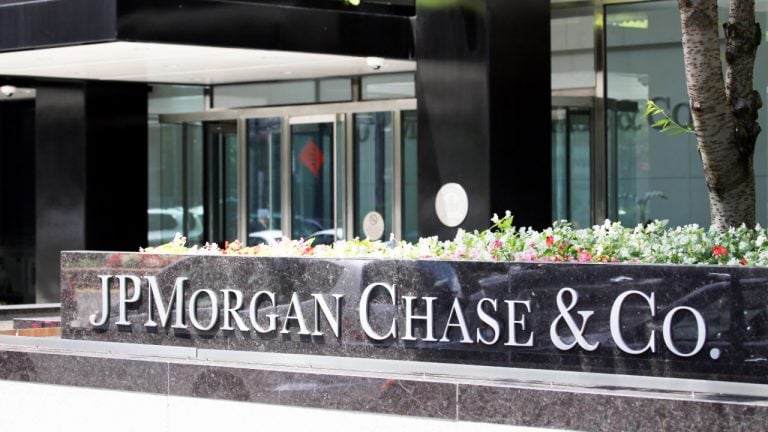
JPMorgan Chase has admitted to fraud charges and agreed to settle with the U.S. Department of Justice, the Commodity Futures Trading Commission, and the Securities and Exchange Commission. The firm has agreed to pay nearly a billion dollars in penalties and victim compensation.
JPMorgan’s Fraud Cases
The U.S. Department of Justice (DOJ), the Commodity Futures Trading Commission (CFTC), and the Securities and Exchange Commission (SEC) announced separate actions against New York-based global banking and financial services firm JPMorgan Chase & Co. and several of its subsidiaries on Tuesday. According to the agencies, JPMorgan has admitted to fraud charges and agreed on settlements to resolve criminal charges against it.
The Justice Department explained that the criminal charges against JPMorgan Chase relate to two distinct schemes to defraud. “The first involving tens of thousands of episodes of unlawful trading in the markets for precious metals futures contracts, and the second involving thousands of episodes of unlawful trading in the markets for U.S. Treasury,” the DOJ announcement details.
The CFTC independently issued an order charging and settling with JPMorgan Chase & Co. and its subsidiaries, JPMorgan Chase Bank and J.P. Morgan Securities “for manipulative and deceptive conduct and spoofing that spanned at least eight years and involved hundreds of thousands of spoof orders in precious metals and U.S. Treasury futures contracts on the Commodity Exchange, Inc., the New York Mercantile Exchange, and the Chicago Board of Trade.” The CFTC detailed:
JPM is required to pay a total of $920.2 million — the largest amount of monetary relief ever imposed by the CFTC.
This total amount includes the highest restitution, disgorgement, and civil monetary penalty amounts in any spoofing case, the agency added.
“For nearly a decade, a significant number of JP Morgan traders and sales personnel openly disregarded U.S. laws that serve to protect against illegal activity in the marketplace,” Assistant Director William F. Sweeney Jr. of the FBI’s New York Field Office commented. “JP Morgan Chase and Co. agreed to pay nearly one billion dollars in penalties and victim compensation.”
In addition, the Securities and Exchange Commission issued an order charging J.P. Morgan Securities “for fraudulently engaging in manipulative trading of U.S. Treasury securities.” According to the SEC:
J.P. Morgan Securities admitted the findings in the SEC’s order, and agreed to pay disgorgement of $10 million and a civil penalty of $25 million to settle the action.
What do you think about JPMorgan’s fraudulent activities? Let us know in the comments section below.
The post JPMorgan Admits Fraud, Agrees to Billion Dollar Settlement for Illegal Trading appeared first on Bitcoin News.
from Bitcoin News https://ift.tt/3mYHAQ1
Comments
Post a Comment